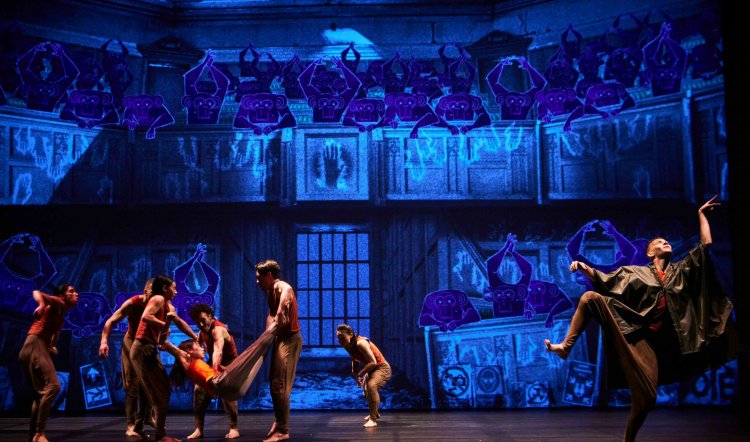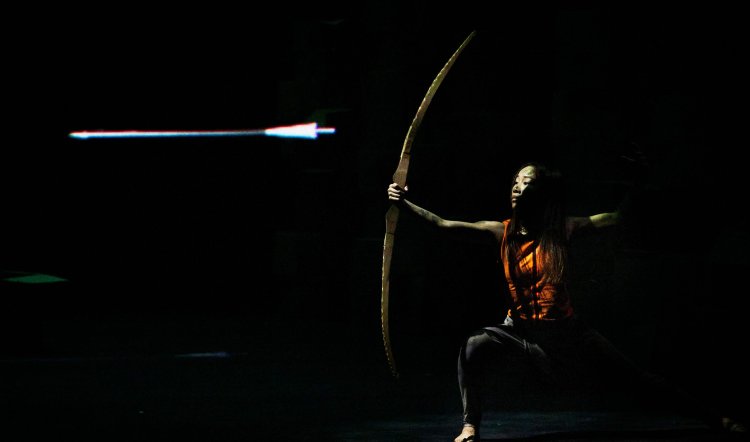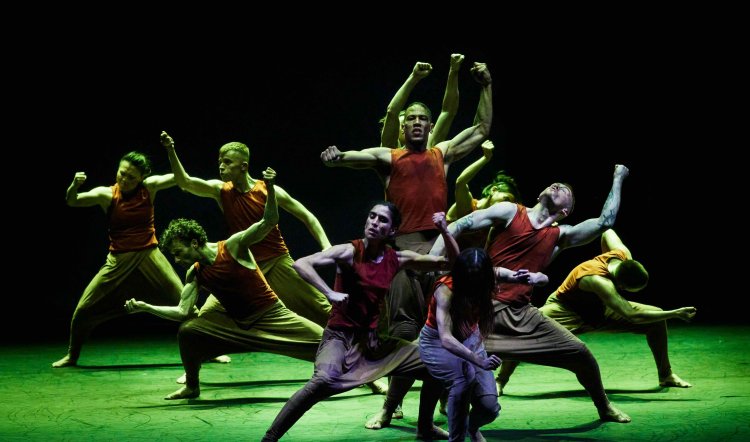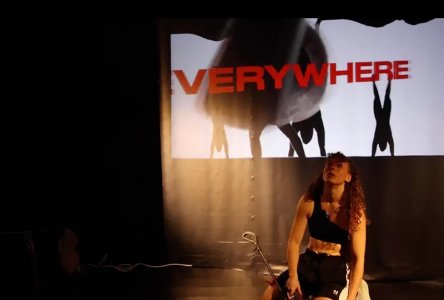
PERTH FESTIVAL - JUNGLE BOOK REIMAGINED
JUNGLE BOOK REIMAGINED, Akram Khan Company, at Heath Ledger Theatre, Perth Festival, 9-17 February 2024. Adelaide Festival at the Festival Centre March 15-17. Photography by Ambra Vernuccio
VICTORIA LAURIE
Two enduring images of Akram Khan’s Jungle Book Reimagined are of a prowling panther and a psychotic monkey, creatures bearing the scars of human interaction. As the panther Bagheera, dancer Holly Vallis slinks and snarls, her clawed hand-paws drawing the eye and the viewer’s imagination into a pact of utter belief.
Then there’s the monkey character Specimen One, a laboratory escapee with human-like tics and the tragicomic traits of a maddened animal. Dancer Max Revell’s depiction is worth the price of a ticket to this haunting production.
Generations of children have read Rudyard Kipling’s original classic, The Jungle Book, in which a young boy Mowgli faces his fears and triumphs over them. Newer generations have watched a Disney Jungle Book version that mimics the original tale of “stiff upper lip” stoicism. Set in a jungle teeming with animal life – a cunning fox, a brutish bear, a wise wolf – it culminates in Mowgli’s encounter with his ultimate foe, the tiger Shere Khan.
Akram Khan’s take on Kipling’s classic identifies the foe elsewhere, of which more shortly. He anchors the show’s message in a Kiplingesque parade of animal characters: the awkward, embraceable bear Baloo, panther Bagheera and a troupe of monkeys whose body gestures “speak” the text we hear, like simian Auslan interpreters. When the characters adopt a certain pose and tone, you realise they are quoting snatches of the text derived from Kipling’s book.
Yet Khan’s version is no fusty revival of an imperialistic tome set in an Indian jungle and steeped in the paternalistic attitudes of Kipling’s Victorian era. This reimagining is an utterly contemporary account of the perils that beset a child in today’s world. Khan’s version is so compelling it becomes a classic all of its own, rooted in superlative dance (with hybrid accents of Khan’s own training in kathak dance) and spellbindingly rich in visual effects.

Khan’s artistry and his large creative team are evident from the first moment – we are transported to a turbulent and rising sea, a sinking raft of refugees, then a ruined cityscape in which the jungle animals appear to have escaped from an abandoned zoo.
The single human figure is Mowgli, a child displaced and stateless like millions around the world. As the slender and strongly defiant young girl, Maya Balam Meyong delivers a stellar performance.
This apocalyptic tale is conveyed using every aspect of theatre craft, as Khan tosses the baton from text, to dance sequence, or animation, to musical interlude to drive an aspect of the story forward.
In this he is assisted by the sparse text of writer Tariq Jordan, video design by Nick Hillel, Adam Smith’s line-drawn animation, and composer Jocelyn Pook’s evocative music, to name a few of the creative team.
At one stage, an elephant foot emerges from the side, the animal’s huge body only partially glimpsed while, behind the image projected on a sheer curtain, a crowd cowers in awe at the impending rampage.
In another sequence, there’s a flashback to Mowgli’s village life and her caressing mother sitting under a tree. At other times we join a parliament of jeering, jostling monkeys, or observe how a conga line of boxes conjures up Mowgli’s nemesis, a sinister snake, Kaa.

The point has been made elsewhere that Kipling’s original Mowgli faced a hostile world in which the child had to find food and water and survive amid the jungle’s teeming animal life. But there was no hint of our existential threat – that there may soon be no planet to live on.
A layered soundscape (Gareth Fry) weaves in this crucial modern element – snatches of real news reports about climate change, and the instantly recognisable voice of Greta Thunberg, channelling the anguish of her generation in the cry “How dare you!”
It sums up the underlying theme of Khan’s Jungle Book – that young people inheriting the earth from offending generations must be listened to. Trashing the planet must stop.
As Khan himself says of Jungle Book Reimagined, “this is not a children’s show, this is not an adult’s show, this is everybody’s show. We are right here now, and we are dealing with climate change.”
Comments
Leave a Comment
Enter your username and password to comment. Don't have a username? Register now.

-c444x300.jpeg)


Be the first to leave a comment below